
Qurbani is an act of worship that is most beloved to Allah (SWT) during the days of Tashriq (11th, 12th and 13th of Dhul Hijjah), so it is important to offer the best possible sacrifice.
Our quality assured qurbani programme is a specialised worldwide programme which upholds Core Humanitarian Standard on Quality and Accountability and Shariah compliance throughout the entire process to ensure individuals receive quality, halal (permissible) and tayyib (healthy, pure) qurbani meat.
This means that the qurbani meets the needs of the rightsholder, upholds the rules of qurbani and ensures Shariah compliance, regulatory standards and animal welfare standards.
Our country offices in the countries where we operate are one of our major strengths. Being present on the ground allows us to have close proximity to our the vulnerable people we serve. We have dedicated staff employed in these countries, which puts us in a unique position. As locals, we have a deep understanding of the needs of vulnerable people, enabling us to provide them with the best possible support.
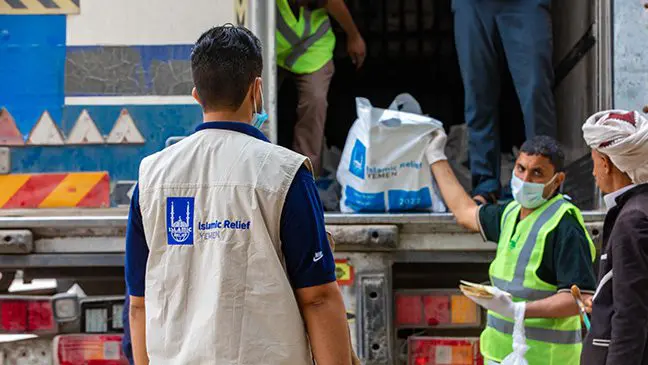
Our field teams conduct a comprehensive needs assessment in collaboration with rightsholders (people who receive our aid), community leaders, and local authorities. This assessment helps identify and prioritise the most vulnerable individuals or groups. We also coordinate with other organisations involved in qurbani distribution to avoid duplication and ensure that our interventions reach underserved areas effectively.
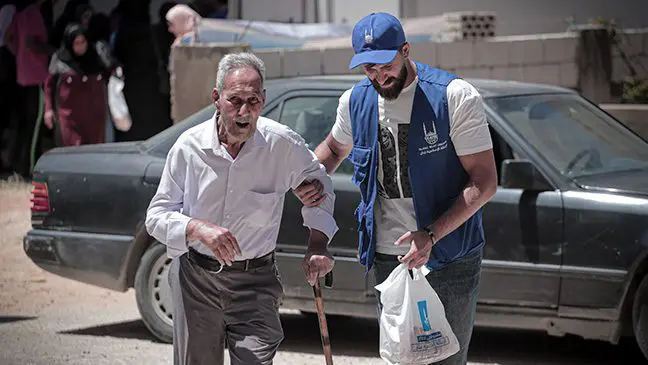
The qurbani meat is transported in refrigerated trucks with a maintained cold chain until it reaches our rightholders
Prior to slaughter, our livestock undergo rigorous inspections to ensure compliance with both veterinary and Shariah standards. These inspections guarantee that the animals meet the requirements for qurbani according to Shariah principles and that the resulting meat is of excellent quality and safe for consumption by humans.
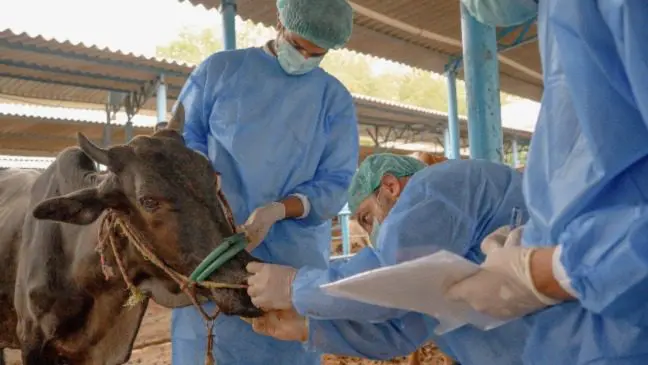
Our approach for the qurbani project is adaptable and tailored to the specific needs of each location. We prioritise collaboration with regulated slaughterhouses that uphold strict machinery and hygiene standards, ensuring the freshness and safety of the meat. In the absence of regulated slaughterhouses, we adopt a community-led approach where trained volunteers and butchers actively engage the entire community under the close supervision of Islamic Relief staff.
To maximise the impact and serve a greater number of households, our preference is to select larger animals for qurbani, taking into consideration their availability in each country. This approach leads to a higher meat yield, allowing more households to receive qurbani meat packs and benefit from our distribution efforts.
We prioritise adhering to the Core Humanitarian Standard and Shariah compliance throughout the entire qurbani process. They conduct thorough inspections of the livestock and oversee the slaughter process. Our focus is to ensure the use of high-quality livestock suitable for this religious act, with supervision from veterinary doctors, local imams, religious scholars and other religious authorities.
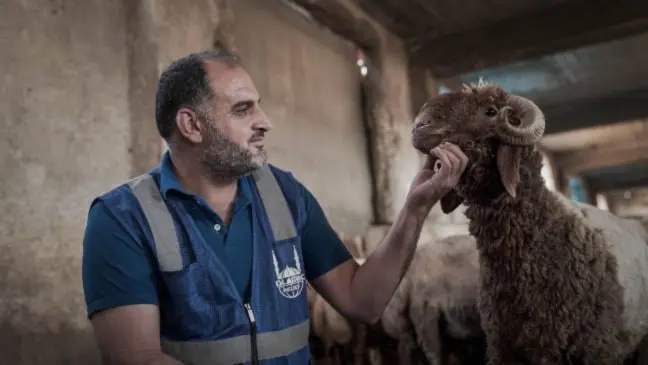
We maintain the well-being of the livestock and strictly follow best practices and compliance guidelines. Furthermore, we store the meat in refrigerators or transport it in refrigerated vehicles, adhering to local hygiene and food safety regulations. This commitment guarantees that the qurbani process is conducted with care and respect, upholding religious and regulatory standards.
Our dedicated staff members complete qurbani checklist declarations to ensure adherence to all qurbani requirements. Waste disposal is carried out responsibly, following local regulations. In countries where all parts of the animal are consumed, such as offal and skin, waste is minimised. In other countries where only specific organs and meat are consumed, waste materials are appropriately disposed of either at the slaughterhouse or buried in designated community slaughter sites.
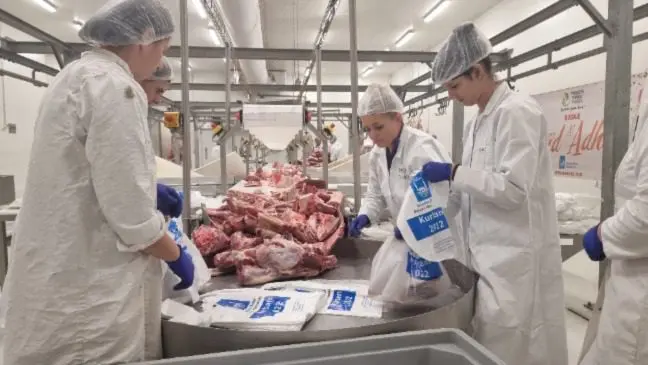
To maintain efficiency and meet deadlines, we closely monitor the number of qurbanis and the capacity of each field office. We establish contractual agreements with suppliers to accommodate any unexpected increase in qurbani orders. With over 38 years of experience in conducting qurbani, Islamic Relief has cultivated strong relationships with local communities and suppliers, enabling us to fulfil qurbanis promptly and efficiently.
The qurbani meat is transported in refrigerated trucks with a maintained cold chain until it reaches vulnerable people.
Islamic Relief’s qurbani prices may be slightly higher than those of other organisations, but this is because we prioritise providing a high-quality service. We go the extra mile by purchasing healthy animals that yield more meat for vulnerable people.
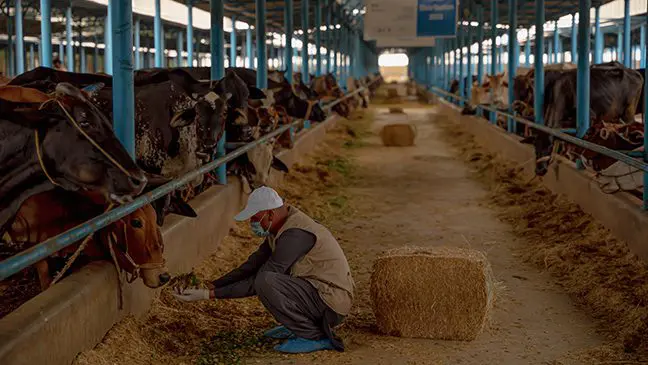
We strongly believe in investing in various components of the qurbani project to ensure its effectiveness. This includes conducting needs assessments, collaborating with local authorities, sourcing higher-spec livestock, and implementing rigorous monitoring, evaluation, accountability, and learning (MEAL) processes. These additional efforts are reflected in our prices as they contribute to reaching the most vulnerable people in the most effective way possible.
Our commitment is to serve vulnerable people with dignity and respect, while also considering the well-being of the environment. When it comes to slaughter practices, we ensure that they are conducted in appropriate sites with proper drainage and waste disposal systems, avoiding the issue of leaving waste unattended.





We will always treat your personal information with the utmost care and will keep it private (read our privacy policy). You can opt out at any time by contacting us via email at IslamicReliefWorldwide@irworldwide.org or by clicking the unsubscribe button on one of the emails you receive from us.
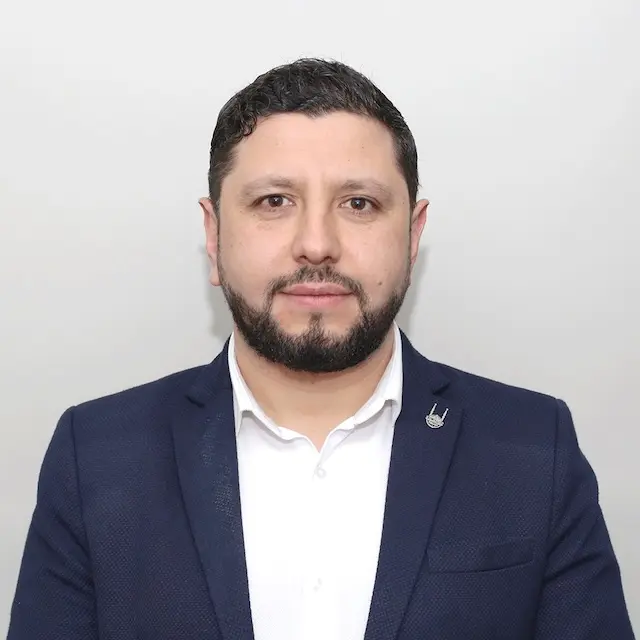
Zia Salik was appointed Interim Director of Islamic Relief UK in 2025, and brings with him over 18 years of third sector experience. He has held several leadership roles within Islamic Relief UK, including National Events Coordinator, National Community Fundraising Manager, Head of Fundraising, and Deputy Director. Zia has led national fundraising strategies, managed large-scale campaigns and events, and contributed significantly to volunteer development, donor engagement and public outreach.
As Interim Director, Zia oversees multiple teams and contributes to strategic planning, operational leadership and organisational growth. He is recognised for his expertise in major donor management, public speaking, media engagement and community fundraising. Zia has been instrumental in building strong community networks and delivering impactful campaigns.
Before joining Islamic Relief, Zia served as Programmes Manager at Humber All Nations Alliance, where he led organisational growth, project delivery and funding proposals.
Zia is a seasoned leader committed to social justice, who brings a collaborative, mission-driven approach to his work, helping to amplify voices and maximise impact in the charity sector.
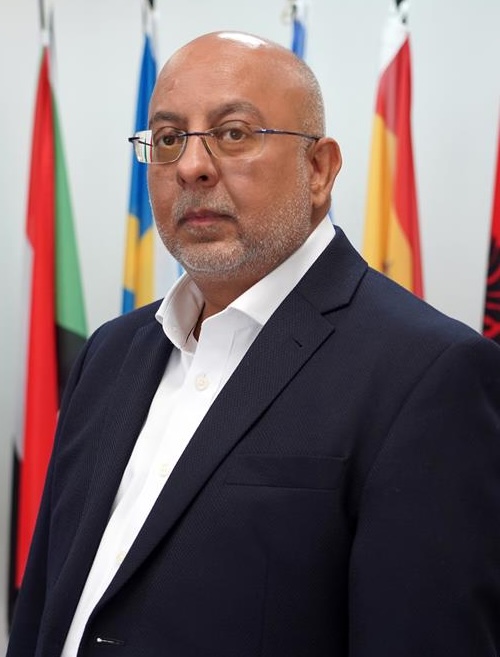
Nadeem has a wealth of experience from the charity, statutory and private sectors. He is the Managing Director of HAD (a division of IRW) which is a centre of excellence seeking to empower the humanitarian sector and maximise its effectiveness and from October 2025 will serve as our interim CEO.
Before joining Islamic Relief, for nearly a decade at the General Medical Council — a globally recognised professional regulator — Nadeem managed strategic relationships with Chief Medical Officers and senior leaders. Prior to that, he served as the UK Director of Islamic Help, engaging closely with many international non-governmental organisations and playing a key role in fundraising and media activities.
In 2000, Nadeem was admitted as a solicitor. He spent nearly 8 years as a Partner at a law firm specialising in employment, regulatory and charity law. He has published papers, including in the Modern Law Review, and chapters in books.
Nadeem is deeply committed to strengthening civil society organisations and the charity sector, and throughout his career has focused on improving foundations for future generations and building strong networks. Nadeem has particular expertise working in matters of Learning and Development, especially personal and professional development, combining Islamic principles with modern techniques and interventions. He is also especially interested in psychological perspectives and cognitive distortions. He has designed and delivered training to thousands of people for nearly 3 decades.
As well as individual development and growth, Nadeem has spent 20 years working with organisations to manage and lead people to improve outcomes and efficiencies. He is a Consultant Coach, qualified at ILM Level 5 in Effective Coaching and Mentoring and ILM Level 7 in Executive and Senior Leadership Coaching. He was Chair of the Independent Advisory Group for the Professional Standards Department of West Midlands Police for 4 years, where he was awarded recognition for his ‘Outstanding Work.’
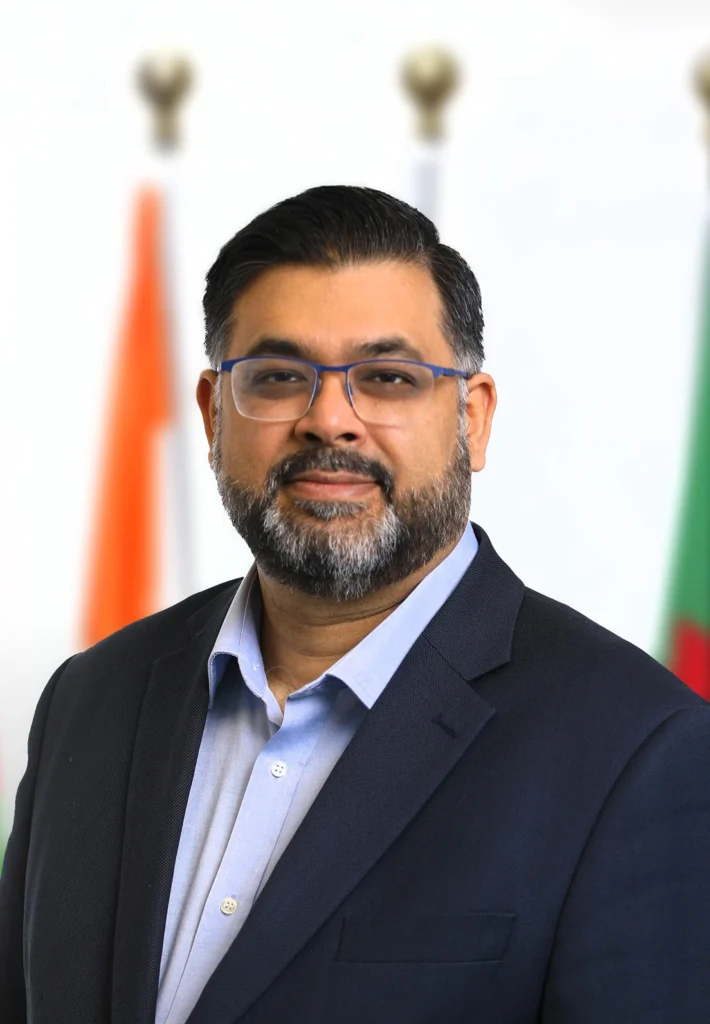
Saqeb Mueen
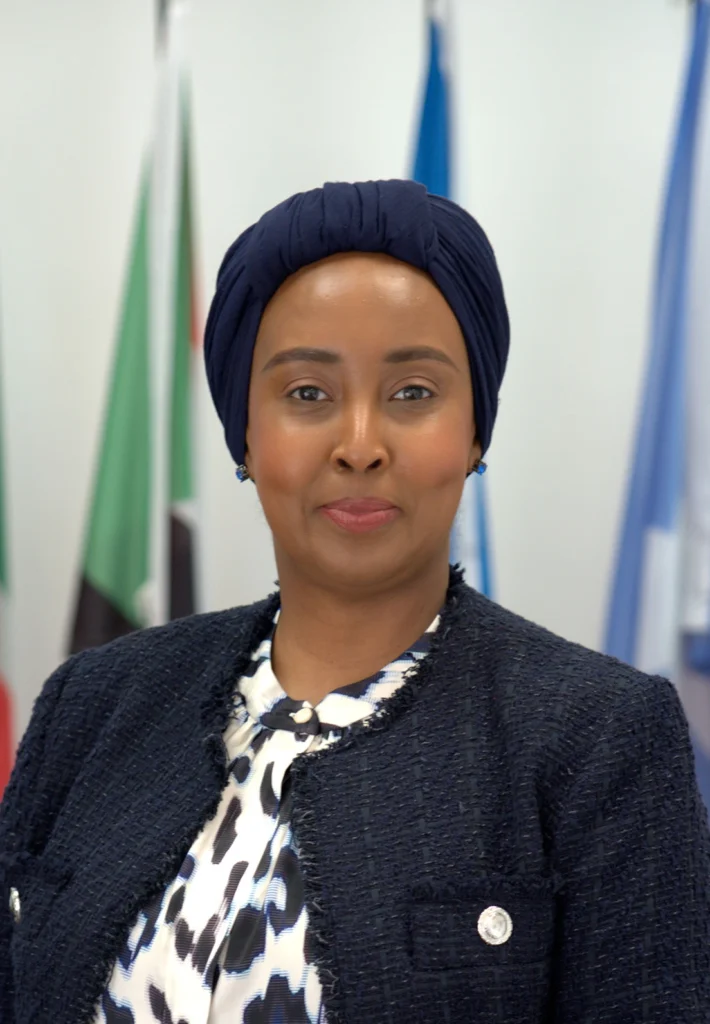
Asha joined Islamic Relief in 2025 with the aim of working with colleagues to create an environment where everyone feels valued, empowered, and motivated to contribute meaningfully to our shared mission.
Asha has more than 20 years of experience in HR leadership across a range of industries, holding roles at Thomson Reuters, BMW, Movado Group and others. She is passionate about building strong, resilient teams and fostering positive workplace cultures where individuals are empowered to thrive, contribute and do their best work.
Asha holds a BA in Management, Economics and Law, as well as a BA in Business Studies. She is an Associate Member of the Chartered Institute of Personnel Development.

Adnan joined Islamic Relief in 2004 as a regional fundraiser in the UK. He worked in multiple roles over 10 years at Islamic Relief UK, including setting up the first digital team and leading the growth of digital fundraising and engagement. Adnan also led numerous fundraising and marketing campaigns, which played a significant part in the growth of Islamic Relief UK.
Having moved to Islamic Relief Worldwide in 2014, Adnan has held different roles that have helped grow Islamic Relief’s global digital footprint into new geographic territories, supporting Islamic Relief members with their digital and marketing growth as well as developing new products and initiatives for the Islamic Relief family.
Adnan graduated in Industrial Design and Technology from Loughborough University. He has since completed an Advanced Diploma in Business Administration from Durham University and a Diploma in Digital Marketing from the Institute of Data and Marketing.

Nadeem Azhar
Nadeem joined Islamic Relief Worldwide in September 2022. He has worked in the charitable sector for over a decade.
He studied Modern History and Politics at Manchester University, and at the University of Law in London before qualifying as a solicitor in 2011.
Nadeem is an experienced corporate, commercial and governance lawyer, having worked with various faith-based and grant making charities as well those in health and education settings. He was a partner at a law firm in London before moving in-house where he focused on setting up and restructuring charities and social enterprises.
Most recently, Nadeem was Lead Counsel at Mind, a leading mental health charity, where he co-authored a new federation agreement, revamped legal processes, and played a major role in developing its strategic and fundraising partnerships.
Nadeem has been a charity trustee for the Seafarers Charity, as well as many grant-making bodies and theatre companies.
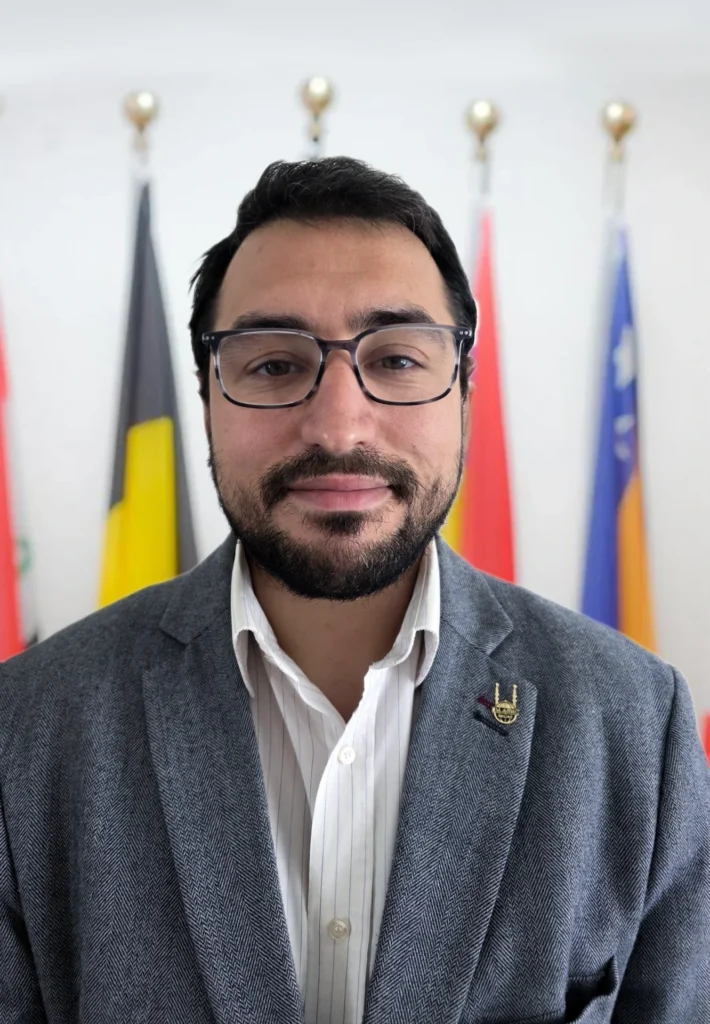
Salaheddin joined Islamic Relief UK in 2006 and over the next 7 years held multiple roles, including Community Fundraiser and Campaigns Manager, before joining Islamic Relief Worldwide in 2013.
Since then, Salaheddin has been instrumental in the launch and growth of new Islamic Relief member offices in Ireland, Spain, Norway and Finland, as well as providing essential support and guidance to existing members, including Italy, where he served as CEO for 3 years.
In 2023, Salaheddin became Deputy Director of Global Family Development and in this role has continued to play a crucial part in steering Islamic Relief’s growth and expansion. He has also led global fundraising and media engagement for major emergencies including the Türkiye-Syria earthquake and Libya floods. Salaheddin became the Interim Director of Global Family Development in 2025.
Salaheddin holds a master’s degree in International Development and is actively involved in several community-led initiatives. He is currently the Vice President of the International Union of Muslim Scouts and Deputy Chair of the UK Muslim Scouts Fellowship as well as Chair of the South Birmingham Muslim Community Association.




Martin Cottingham joined Islamic Relief in 2012 as IRUK Media Relations Manager, and was appointed Head of Communications in 2015 before taking up his current position as Director of External Relations and Advocacy for Islamic Relief Worldwide.
Martin has helped Islamic Relief to increase its mainstream media profile and expand its campaigning work, producing hard-hitting advocacy reports on floods in Pakistan (2011) famine in Somalia (2012) disaster risk reduction (2013) and aid to Afghanistan (2014). He has over 20 years’ experience working in media, communications and marketing roles for international development and environmental charities.
Martin graduated from the University of London with a degree in English and Drama (1982-85) then trained as a journalist with a postgraduate diploma at City University (1986-87). He has previously worked for Christian Aid as Editor of Christian Aid News and Media Relations Manager (1988-97) for Oxfam as Regional Campaigns Manager (1997-2000) and at the Soil Association as Marketing Director (2001-2006), as well as working for a wide range of organisations as a freelance writer, researcher and communications consultant.


Waseem Ahmad joined the Islamic Relief family over 24 years ago, serving as Programme Officer in the Balochistan province of south-western Pakistan before becoming Head of Programmes in Pakistan. Waseem then moved to Oxfam and Tearfund before returning to Islamic Relief to establish our mission in Malawi. Later serving as Head of Programme Funding and Partnerships, Waseem led the response to major crises across the globe, including the East Africa drought, Pakistan earthquake and the Indian Ocean Tsunami.
Waseem then served for nearly 6 years as our Director of International Programmes, during which time the charity secured and retained the coveted Core Humanitarian Standard certification in recognition of the quality of our programming. He was appointed CEO of Islamic Relief in May 2021.
With a special interest in community mobilisation and infrastructure, Waseem received an MSc in Project Planning and Management from the University of Bradford, as well as an MSc in Economics from Arid Agriculture University in Rawalpindi, Pakistan.
Waseem has also worked for Lepra Health in Action and is a member of the International Civil Society Centre’s Board of Trustees. The father-of-3 enjoys walking and playing football, and is a keen birdwatcher.
